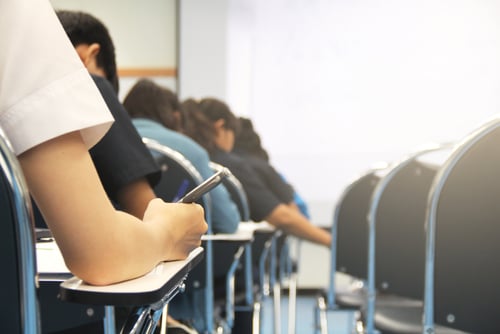3Ls in New York would take early bar exam, devote final semester to pro bono in new program
New York’s Chief Judge Jonathan Lippman announced a new “pro bono scholars” program on Tuesday in which third-year law students would take the bar exam in February in exchange for devoting their last semester to pro bono work.
The first-of-its-kind program has already been approved by the Board of Law Examiners, Lippman said in his annual speech (PDF) on the state of the judiciary. An advisory committee will “address the logistics of an expanded February bar exam, ensure compliance with ABA standards, and develop a more precise timetable” for implementation, he said. The New York Times, the Associated Press and the New York Law Journal (sub. req.) covered his remarks.
New York’s 15 law schools, along will other law schools, will have the option of participating in the program, though there will need to be some limits on student participation as the program is developed, Lippman said. Participating 3Ls would begin studying for the bar after finishing fall semester exams, and would begin full-time pro bono work after taking the bar exam in February.
The students’ pro bono work will be overseen by a legal-service provider, law firm or corporation in partnership with their law school, Lippman said. At the same time, “law schools will oversee a rigorous academic component to ensure that students are learning vital practice skills.” An accelerated character and fitness review process would allow the students to get their law licenses soon after graduation.
The goal, Lippman said, is to “instill in future members of the New York bar the value of public service to the poor and to provide them with the opportunity to acquire valuable legal skills that will prepare them for the practice of law.”
The Times says law deans responded to the program with “cautious enthusiasm.” Some said the quality of training would have to be high, while others expressed concern about the short time period to study for the bar and the incentive to work hard after passing. Washington University law professor Brian Tamanaha told the Times that the changes won’t necessarily change the economic situation for law students, who will be learning skills in pro bono that may not help them land top-paying corporate jobs.



